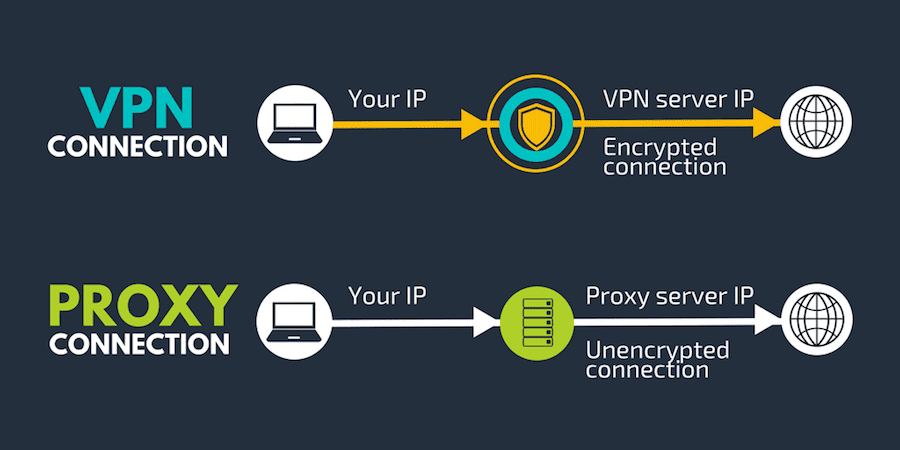Key Differences between Proxies and VPNs
There are some key differences between VPNs and proxies that many people do not realize. While both types of connections are secure and encrypt data, the two technologies are not the same. This article outlines the differences between the two and explains which one is better for your needs. Ultimately, it is up to you to decide which one is right for your needs. Regardless of the purpose, both options can be extremely useful and protect your privacy. A VPN and a proxy both have different strengths and weaknesses. While VPNs are more secure and offer a lot of added privacy, proxies can be vulnerable to malicious activity. In addition to this, VPNs are more user-friendly. A proxy can bypass IP-based or simple content filtering.
While a proxy provides some basic protection from hackers and other malware, it does not offer the level of security offered by a VPN. This is an important feature, because you may be using a public WiFi network, and you may not want to expose your data to hackers or the general public. VPNs include built-in kill switches, worldwide servers, and DNS leak protection. This can allow bad actors to break into your network and steal your private information. Some proxies are also capable of recording your browsing habits and usernames. .
Both VPNs and proxies are important. While a proxy can mask personal information, a VPN can spoof your location and bypass firewalls and region locks. In this way, you can access the internet without being tracked. Proxies are free to use, but these services can often come with hidden costs. For example, a proxy that depends on advertising revenue will share your data with third-party networks. Furthermore, proxies can also use for nefarious purposes. Governments and hackers may set up a "free" proxy server to gain access to websites. As a result, VPNs are far more secure and efficient.
Proxies and VPNs are best used by mid-to-large companies. A VPN is a better option for large businesses. Businesses should use VPNs to ensure their privacy. These technologies enable them to extend their networks geographically and connect to remote networks using the internet. VPNs can also be used by remote users to gain secure access to internal networks and test geo-tailored content. They can provide secure access for remote users. They act as intermediary nodes and centralize requests and responses from the client.

Although VPNs and proxies have some similarities, they serve different purposes. A VPN can enable remote users to access their internal network without compromising their security. Besides their unique uses, VPNs offer more privacy than proxies. End-to-end encryption protects all your information and prevents any third party from tracking your activities. These features, and others, make VPNs superior to web proxies. If you are concerned about your online privacy, a VPN can offer more secure browsing. The key difference between the two is the use of different protocols.
VPNs and Proxies Have the Same Goals: They both protect your data. A VPN provides end-to-end encryption, while a proxy is designed for specific use cases. A VPN covers your entire operating system and it can hide your real IP. This makes it much more secure. It is also important to consider that a proxy's privacy benefits are limited, so you will need to take the right precautions to keep your data safe. A VPN creates a tunnel between your computer and remote servers. A proxy does not it. While a VPN can be more secure, it still uses TCP, UDP, and other protocols. This gives a VPN more flexibility. In many cases, a proxy is more secure.
A proxy works as a middleman between the web and an external server. It can make it appear that your traffic is coming from a different computer than yours. For example, a user in New York City can access a website that's blocked in that country. However, the traffic from the proxy server's IP is not encrypted and can be traced back to a different location. Despite this, VPNs are still the best choice for businesses that need to protect their sensitive data. A VPN is better suited for businesses that require high-quality privacy. A VPN also ensures that users IP address is anonymous.
VPNs are more secure than proxies, but they are not exactly the same. Essentially, a VPN is a private network that runs over your public network. A proxy is a proxy that hides your IP address but does not protect you from malicious software. A proxy can be an effective solution in some situations, but a VPN should be your first choice. A VPN offers several benefits. VPNs are a good choice for individuals who want to surf the internet privately. A VPN will keep your data safe even if you are at home. If you use a proxy for personal use, your data is not hidden, and neither will your security.
BACK TO NEWS